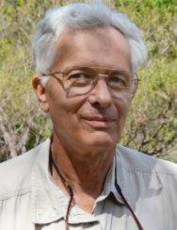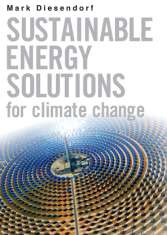What energy source will most cheaply fulfil the world’s energy demand in the next fifty years?
Mark Diesendorf


Fifty years from now there may be new technologies which are unpredictable. However, based on existing technologies, electricity almost certainly will be supplied by a mix of renewable energy and energy storage technologies.
Within this mix, solar photovoltaics will be the cheapest, followed by wind. The cheapest form of storage probably will be pumped hydro. However, batteries will be much cheaper than those avail- able now, and will play an important role in short-term storage. Most ground transport and industrial and residential heating also will be provided by renew- able electricity; however, air and sea transport will use renewable fuels (e.g. hydrogen; ammonia) produced by means of renewable electricity.
Actually, the electricity part of the above scenario is not fifty years away. Peer- reviewed studies published in international journals find that in some regions (e.g. Australia, Europe) renewable electricity systems are already cheaper than new fossil fuelled or nuclear energy systems.
According to independent studies by Lazard and the U.S. Energy Information Administration, the levelized cost of new ‘advanced’ nuclear electricity in the USA is roughly double that of new solar photovoltaics and wind. While solar and wind energy sources are still becoming cheaper, nuclear energy is becoming even more expensive.
Those who imagine that fossil fuels will still be dominant in fifty years have overlooked the consequences of global climate change, already impacting us in terms of droughts, heatwaves, wild fires, floods and hurricanes. In fifty years, large regions of a fossil fuelled world would be uninhabitable.
Source: From Quora, 29 Oct 2018
Prof Mark Diesendorf is located at the University of New South Wales, and is known for his work in sustainable development and renewable energy.



























